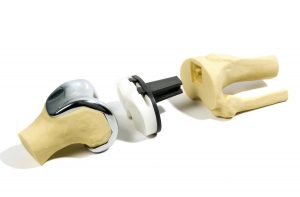Defective medical devices have hurt scores of patients
Metal-on-metal hip replacements have crippled thousands; surgical mesh used in pelvic surgeries have led to severe complications and deaths; heart stents have fractured; knee replacements and IVC filters have failed; and the improper handling of duodenoscopes during examinations of the small intestines are linked to hundreds of antibiotic resistant infections.
The list was compiled from reports by major news agencies, including The Washington Post in 2011, ProPublica in 2012, The New York Times in 2015, Reuters in 2015, The New York Times in 2016, and Scientific American in 2016. The Brookings Institution reported in 2016

A new, yearlong study by 250 journalists in 36 countries “examined more than 8 million device related health records, including death and injury reports” and found nearly 83,000 deaths and more than 1.7 million injuries possibly linked to medical devices in the U.S. alone since 2008.
How can this happen?
Doctors may not always know a device has defects. Critics say that’s because the U.S. Food and Drug Administration (FDA) doesn’t test some devices before they go on the market and fails to monitor them once they’re in use, leaving many serious defects underreported.
If a manufacturer can claim a device that it altered is “substantially equivalent” to a previously FDA approved device, it goes on the market with no testing. Hospitals, nursing homes, medical device manufacturers and importers must report the device to the FDA if it has problems, but there’s no requirement for doctors, nurses and other health care professionals to report it.
A 2016 New York Times report revealed that monitoring systems in Australia, England and Wales discovered crippling defects in metal-on-metal hip implants before the FDA conducted a review and recalled them. It also reported that data the FDA collects is “potentially incomplete, inaccurate, untimely, unverified or biased.”
The FDA wants to improve its reporting system
In November 2018, the FDA announced plans to actively monitor devices once they’re in use. If Congress approves, it will attach codes to the devices and if they fail, the FDA can recall them. But a multi-million dollar lobbying effort by the medical device industry is pressuring Congress to loosen regulations on its products. That effort “far exceeds” the lobbying resources “of consumer and patient advocates,” according to a 2018 report by NBC News.
Wayne Wright has the medical malpractice expertise to help victims
Wayne Wright knows, under the FDA’s rules, companies are responsible for every medical device they make. He is one of America’s top trial lawyers. His numerous, national legal honors prove he gets top results for those injured by a corporation’s failure to protect patients. He doesn’t charge by the hour.You won’t pay unless Wayne Wright wins your case. Calls to the Wayne Wright law firm and evaluations of your case are free.
Defective medical devices have hurt scores of patients
Metal-on-metal hip replacements have crippled thousands; surgical mesh used in pelvic surgeries have led to severe complications and deaths; heart stents have fractured; knee replacements and IVC filters have failed; and the improper handling of duodenoscopes during examinations of the small intestines are linked to hundreds of antibiotic resistant infections.
The list was compiled from reports by major news agencies, including The Washington Post in 2011, ProPublica in 2012, The New York Times in 2015, Reuters in 2015, The New York Times in 2016, and Scientific American in 2016. The Brookings Institution reported in 2016 that medical devices – including failing pacemakers, insulin pumps, breast implants, spinal cord stimulators and “other surgically implanted devices – are linked to “about 3,000 deaths per year in the United States.”
A new, yearlong study by 250 journalists in 36 countries “examined more than 8 million device related health records, including death and injury reports” and found nearly 83,000 deaths and more than 1.7 million injuries possibly linked to medical devices in the U.S. alone since 2008.
How can this happen?
Doctors may not always know a device has defects. Critics say that’s because the U.S. Food and Drug Administration (FDA) doesn’t test some devices before they go on the market and fails to monitor them once they’re in use, leaving many serious defects underreported.
If a manufacturer can claim a device that it altered is “substantially equivalent” to a previously FDA approved device, it goes on the market with no testing. Hospitals, nursing homes, medical device manufacturers and importers must report the device to the FDA if it has problems, but there’s no requirement for doctors, nurses and other health care professionals to report it.
A 2016 New York Times report revealed that monitoring systems in Australia, England and Wales discovered crippling defects in metal-on-metal hip implants before the FDA conducted a review and recalled them. It also reported that data the FDA collects is “potentially incomplete, inaccurate, untimely, unverified or biased.”
The FDA wants to improve its reporting system
In November 2018, the FDA announced plans to actively monitor devices once they’re in use. If Congress approves, it will attach codes to the devices and if they fail, the FDA can recall them. But a multi-million dollar lobbying effort by the medical device industry is pressuring Congress to loosen regulations on its products. That effort “far exceeds” the lobbying resources “of consumer and patient advocates,” according to a 2018 report by NBC News.
Wayne Wright has the medical malpractice expertise to help victims
Wayne Wright knows, under the FDA’s rules, companies are responsible for every medical device they make. He is one of America’s top trial lawyers. His numerous, national legal honors prove he gets top results for those injured by a corporation’s failure to protect patients. He doesn’t charge by the hour.You won’t pay unless Wayne Wright wins your case. Calls to the Wayne Wright law firm and evaluations of your case are free.
